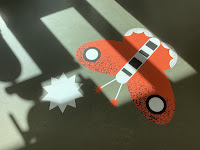The final keynote at the WILU conference in Vancouver, Canada. It was delivered by Dr. Rajdeep S. Gill (Kwantlen Polytechnic University): Interdependence, Community and Liberation: Transformative Possibilities of a Decolonial, Whole-Person Approach to Teaching and Learning in Libraries.They started by playing a video with a song about walking with and questioning the sea slug, encouraging patience, slowness and interdependence. They talked about people and the earth as libraries and archives, and his own connection to living beings and the earth. They see humans as dominant but not the most significant beings on the planet. They stressed the interdepence between the inner and outer being. The way they think about academic literacy is honouring where we have learned, particularly learning to be a good human being (therefore connected with concepts such as justice). Similarly doing well in the academy and learning are not the same thing. They feel their deepest learning is from humans (libraries and archives of their personhood) and from the world.
Rajdeep gave the example of a scientific article that was also influenced by a poem and by people close to you, but the latter are not influences you are allowed to cite. Therefore academic integrity would be acknowledging all the sources and influences. It involves people stepping into their personhood. It is more about mutual liberation, acknowledging the gifts of others and the gifts of nature. We cannot live without the forests and oceans. However nature and the earth tend to be backgrounded in academic studies. They prefer the concept of transparency to that of academic integrity.
Rajdeep sees knowledge as a subset of community and arises from immersion in the community. They talked about their approach to learning, and how they didn't like to use coertion, but rather with people (for example) allowed not to take part in activities if they don't want, and to modify as they want. They saw evaluating as inhumane. Learning involves enabling agency and dignity, and enabling diversity.
Rajdeep then encouraged us to sing along with Tracy Chapman's Say it like it is.
Moving on, they encouraged libraries to include land-based programming, and take an ecological approach, making libraries places of belonging. It would involve not taking a Eurocentric, colonialist approach to the academy. They also advocated collaboration amongst different groups in universities and diversity in coursework and assessment (for academics as well as students). For them the concept of merit and meritocracy reflects privilege and colonialism.
Photo by Sheila Webber: more art on the floor at the Kwantlen Polytechnic University, May 2024
Curating information literacy stories from around the world since 2005 - - - Stories identified, chosen and written by humans!
Friday, May 17, 2024
Interdependence, Community and Liberation #WILU2024
Subscribe to:
Post Comments (Atom)

No comments:
Post a Comment